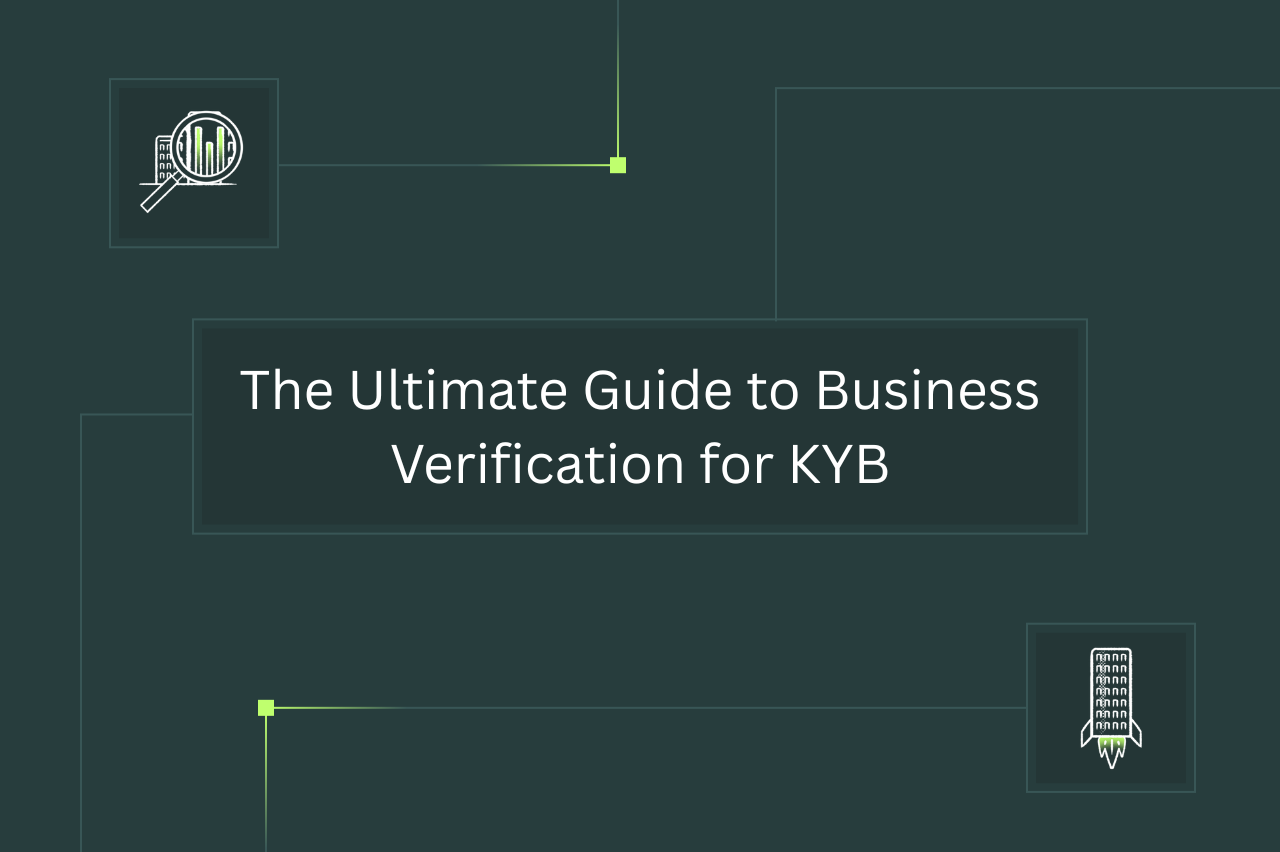In brief:
- The Corporate Transparency Act (CTA) is a U.S. law designed to federally register beneficial owners of business entities operating within the U.S. The primary goal of the law is to combat money laundering and the concealment of illicit money through shell companies in the United States.
- The CTA requires all companies registered to do business in the U.S. – with some exceptions – to submit information about themselves, their beneficial owners, and their company applicants (if applicable) to a database run by the Financial Crimes Enforcement Network (FinCEN).
- Companies registered before the CTA’s enactment date of January 1st, 2024 have one year (i.e. until January 1st, 2025) to file the required information with FinCEN. Companies registered after the CTA’s enactment date have 30 days to file this information.
- Failing to comply with the CTA by the required deadlines, or using or disclosing information obtained through it for unauthorized purposes, can result in fines of up to $10,000 and up to three years in prison for responsible individuals.
Previously, in many U.S. states, companies that registered to do business often didn’t have to provide information about the individuals who actually owned or controlled them. Unfortunately, this led to many incidents where criminals created illegitimate companies to launder money, evade taxes, or commit other illegal acts. And law enforcement had trouble tracking the people responsible, because criminals would be acting in the names of those illegitimate companies instead of in their own names.
With the passing of the Corporate Transparency Act at the beginning of 2021, all of that will soon change. Starting in January 2024, all businesses registered to operate in the U.S. (with some exceptions) must provide identifying information about themselves, their beneficial owners, and their company applicants (in some cases) to the U.S. Financial Crimes Enforcement Network (FinCEN). That way, if a business entity is involved in illegal activity, the crime will now be able to be traced back to the specific individuals in charge of that company.
This article will offer a discussion of the new legislation, including:
- What is the Corporate Transparency Act?
- When does the Corporate Transparency Act take effect?
- What is the main purpose of the Corporate Transparency Act?
- Corporate Transparency Act: summary of key points
- Are there any Corporate Transparency Act exemptions?
- Corporate Transparency Act reporting requirements
- Corporate Transparency Act regulations, penalties, & deadlines
We’ll start by defining what the Corporate Transparency Act is, why it was created, and when it takes effect.
The Corporate Transparency Act is a new U.S. law that mandates the Financial Crimes Enforcement Network (FinCEN) to create an information database on direct or indirect beneficial ownership of businesses. All businesses created or operating within the U.S. are required to contribute to this database.
The information in this database will not be publicly available, but it will be available upon request to law enforcement agencies and other federal authorities acting to fulfill international agreements. It will also be available to financial institutions for the purpose of conducting “Know Your Customer” (KYC) and “Know Your Business” (KYB) checks, if they are given consent from the client in question.
The Corporate Transparency Act’s effective date is January 1st, 2024. At that time, any company operating within the U.S. can either file the information required by FinCEN, or cease business operations and become dormant.
There are also different timelines for when this information is required to be filed. For businesses created before the effective date, they must file their beneficial ownership information with FinCEN no later than January 1st, 2025. Businesses created after the effective date must submit their information to FinCEN no more than 30 days after being registered.
The Corporate Transparency Act’s purpose is to prevent corporations, LLCs, and other business entities from being used to conceal illicit activities. Such activities include money laundering, terrorist financing, human/drug trafficking, piracy, corruption, and securities fraud.
Primarily, the CTA is meant to combat the practice of bad actors establishing “shell corporations” – companies with no active business operations – to hide money or other assets from tax officials and other authorities. These companies have previously made it difficult for U.S. law enforcement to trace illegal activities back to their individual perpetrators. This is because most states don’t require disclosing beneficial ownership information when forming such companies.
Now, however, many companies will be required to provide this information to FinCEN. This makes it more difficult to use business entities to hide criminals and their misdeeds, as FinCEN will know the names of the individuals who own or control companies.
The following is a summary of Corporate Transparency Act regulations in terms of which entities and individuals are subject to them.
Which entities have to report?
All corporations, LLCs, or other business entities registered to do business in a U.S. state or Aboriginal tribe jurisdiction are obligated to participate in Corporate Transparency Act reporting of beneficial owner information. There are some exceptions, which will be covered in a later section.
Who counts as a beneficial owner?
The CTA defines “beneficial owner” in two ways relative to entities required to report:
- Someone who owns or controls at least 25% of ownership interests in an entity
AND/OR
- Someone who exercises “substantial control” over important decisions made regarding the entity (this usually includes senior officers)
Who DOESN’T count as a beneficial owner?
The following categories of people don’t count as beneficial owners and don’t have to have their information reported:
- Minors who are beneficial owners (if their parent or guardian’s information is reported)
- Nominees, intermediaries, custodians, agents, or regular employees of an entity
- Someone who will gain control of an entity through inheritance in the future
- A creditor to an entity (if they do not otherwise fit the definition of a beneficial owner)
Who else must have their information reported?
Businesses registered after the effective date of January 1st, 2024 must also report information related to company applicants. This means that lawyers, paralegal workers, or anyone else involved in filing the registration paperwork for a company as part of their business must also register their information with FinSEC.
{{gated-content-block="/insights/report-middesk-index"}}
In addition to the categories of people outlined above, the Corporate Transparency Act allows exceptions for 23 categories of businesses. The broadest of these categories is “large operating company”, which is a company that does each of the following:
- Employs 20 or more U.S. citizens in full-time positions
- Earns at least $5 million U.S. in revenue each year
- Has at least one dedicated physical office inside the U.S.
Most other categories of exempt businesses are already required to disclose beneficial ownership information, as per regulations in their specific industries. They include:
- Securities issuers, brokers, dealers, and exchange/clearing agents
- Domestic credit unions and government agencies
- Banks, holding companies, and registered money services businesses
- State-regulated insurance providers or producers
- Registered investment companies, including some pooled investment operators
- Registered investment advisers, including some venture capital fund advisers
- Public utility companies and accounting firms
- Certain tax-exempt entities, as well as some entities that assist them
- Inactive companies
- Some subsidiaries of exempted businesses
Each business subject to the CTA must submit the following information about itself to FinSEC:
- Formal name
- Any alternative trade names and “doing business as” names
- Street address
- State or tribal jurisdiction(s) of creation or registration
- A unique identification number such as an EIN, TIN, or LEI
In addition, it must submit the following information about any beneficial owners (and company applicants, if the business is registered after the effective date):
- Full legal name
- Date of birth
- Residential address (beneficial owners) or business address (company applicants)
- Photo and ID number of an acceptable ID document (passport, driver’s license, etc.)
The CTA places limits on how long a company can take to submit reports to FinCEN. In addition, there are steep penalties for individuals who fail to submit accurate reports by the required deadlines, or intentionally provide false information. Furthermore, penalties can be issued to those who acquire information through the CTA, but then share it with unauthorized parties or use it for other unauthorized purposes. We’ll discuss those elements now.
How long does a company have to file a report under the CTA?
Companies registered before the CTA takes effect on January 1st, 2024, must file their company information and beneficial ownership information with FinCEN within one year (i.e. before January 1st, 2025).
Corporations registered after the CTA effective date must file their company information, beneficial ownership information, and company applicant information no later than 30 days after receiving confirmation of their registration.
In addition, if a company experiences changes to its beneficial ownership information or structure, it must file an updated report with FinCEN within 30 days. It must also file an updated report within 30 days if the business’s nature changes so as to be exempt from the CTA.
Finally, if a company finds an unintentional inaccuracy in a report filed under the CTA, it has 90 days from the original report’s submission date to file a corrected report.
Struggling to navigate the constantly changing landscape of financial regulations while still keeping your risk of onboarding bad actors low? Our ebook below can help!
{{gated-content-block="/insights/ebook-navigating-regulatory-changes-and-mitigating-risk"}}
What are considered violations of the CTA, and what are the penalties?
Any company that fails to file a complete and accurate report of its business information, beneficial owner information, and company applicant information (if applicable) by the relevant deadline will be considered non-compliant with the CTA. Likewise, a company that deliberately falsifies any of this information in a report will also be considered non-compliant.
In addition, information collected by FinCEN under the CTA is meant to be used only by U.S. law enforcement officials, federal agencies acting in accordance with international agreements, and financial institutions for KYC/KYB. Distributing or using any information acquired through the CTA for any other purpose also constitutes non-compliance.
Failure to comply with the CTA can result in civil penalties of up to $500 for each day a business remains non-compliant, up to a maximum of $10,000. Furthermore, individuals responsible for (or who benefit from) non-compliance, including filing false reports or misusing information gained through them, can face prison sentences of up to three years.
The Corporate Transparency Act is a bold step forward in limiting the ways criminals can use businesses to hide illicit dealings and assets. But it’s also going to impose new compliance requirements that will likely impact small businesses the most. So we suggest using tools like Middesk’s entity management system to prepare well in advance for filing your report. Schedule a demo to find out how you can get started.











